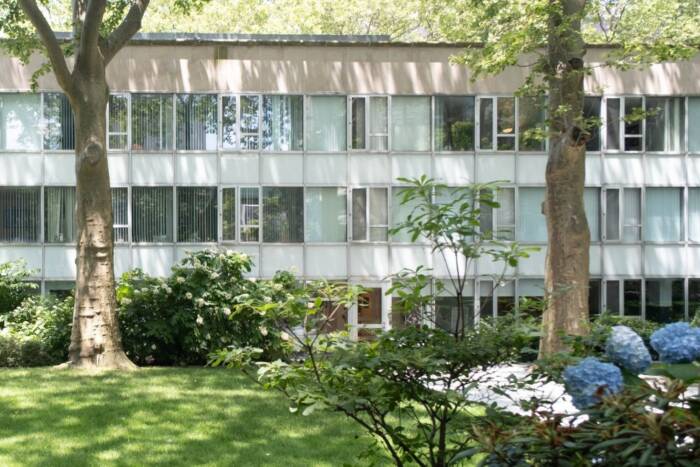Bloomberg, Wilson receive honorary degrees at Rockefeller commencement
The Hon. Michael R. Bloomberg, mayor of the City of New York, and Edward O. Wilson, an evolutionary biologist and naturalist, received honorary doctor of science degrees yesterday at Rockefeller University’s 49th Convocation for Conferring Degrees.
Twenty-eight students from 12 countries, including Canada, Chile, China, Germany, Ireland, Korea, Mexico, Romania, Taiwan, Turkey, the United States and the former Yugoslavia received doctoral degrees at the ceremony. Among the 17 women and 11 men, seven were enrolled in the M.D.-Ph.D. program offered jointly by the university, Weill Medical College of Cornell University and Sloan-Kettering Institute.
”Today, we honor these students who have worked so hard these last several years and congratulate them as they embark on the next stage of their careers,” said university president Paul Nurse. “We are also proud to honor Mayor Bloomberg, whose support for improving public health and strengthening science in New York City has been an inspiration, and E.O. Wilson, who is renowned for a lifetime achievement in science and biodiversity conservation.”
Michael R. Bloomberg is the 108th Mayor of the City of New York. After beginning his career at Salomon Brothers, he founded financial-information and media company Bloomberg LP in 1981. As his company grew, he dedicated more of his time and energy to philanthropy and civic affairs. His desire to improve education, advance medical research and increase access to the arts has provided the motivation for much of his philanthropy.
Already deeply involved in civic affairs, he officially entered public life in 2001, when he entered the race for mayor of the City of New York. As mayor, Bloomberg has taken on an ambitious plan to improve the health of all New Yorkers. Recognizing that cancer and obesity are major health problems, Mayor Bloomberg has championed a ban on smoking and trans fats in restaurants, pushed for bodegas to sell fresh produce and reduced-fat milk and launched a diabetes registry, among other efforts. A report from New York City’s Health Department shows the average life expectancy in the city has increased 9.6 months since 2001. Bloomberg has served on the boards of 20 different civic, cultural, educational and medical institutions, and he was chairman of the board of trustees of Johns Hopkins University until May 2002. He was honored by Johns Hopkins University when its School of Hygiene and Public Health was renamed The Bloomberg School of Public Health, a tribute to his leadership and use of philanthropy to improve the human condition.
Edward O. Wilson is widely regarded as one of the world’s most preeminent biological theorists. Best known for his work tracing the effect of natural selection on biological communities and for extending these ideas to the behavior of human populations in the field of sociobiology, Wilson’s thinking deftly spans both the sciences and the humanities. The author, co-author or editor of more than 20 books and the creator of terms including “biodiversity” and “biophilia,” Wilson’s research has contributed enormously to our understanding of how science intimately informs our everyday lives.
Wilson is the recipient of a National Medal of Science, two Pulitzer Prizes, a Crafoord Prize from the Royal Swedish Academy, a Rockefeller University Lewis Thomas Prize for Writing about Science and both of the teaching prizes voted by students of Harvard College, among numerous other awards. In 1995 he was named one of the 25 most influential Americans by Time magazine, and in 2000 one of the century’s 100 leading environmentalists by both Timeand Audubon magazines.



